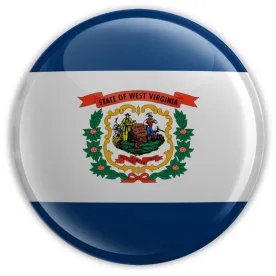West Virginia may have been the last state to report a positive case of the coronavirus (COVID-19), but it has been quick in its response. Governor Jim Justice issued a stay at home order and closed all non-essential businesses.
As of March 31, 2020, the state reported 162 positive cases and one death, with the majority being reported in Kanawha and Monongalia Counties.
Among the businesses deemed essential are:
- Grocery stores
- Convenience stores
- Take-out and delivery restaurants
- Farmers markets, food banks, and food pantries
- Hospitals, clinics, doctor’s offices, and other health care provider facilities
- Pharmacies
- Police and fire stations
- Ambulance services
- Gas stations
- Public transits
- Banks
- Laundromats
- Outdoor public spaces
Unlike most other states, West Virginia permits day care centers and other childcare facilities to stay open.
The Order also incorporates and deems essential the industries and workers described in the U.S. Department of Homeland Security’s Cybersecurity and Infrastructure Security Agency’s March 12, 2020, memorandum.
Of course, businesses that are permitted to stay open are directed to maintain proper social distancing techniques and other mitigation measures to slow the spread of COVID-19.
Other Executive Orders responding the COVID-19 require that certain establishments (such as casinos, barber shops, nail and hair salons, and restaurants and bars) close or limit occupancy. One Executive Order advises liquor stores (which are permitted to stay open) to limit the number of people in stores and to limit the sales to three to four bottles per person. Another Executive Order allows physicians with pre-existing relationships with a patient to refill an existing opioid medication without an in-person examination.
Some West Virginia employers may be dealing with the economic realities and impact of COVID-19 through layoffs, furloughs, and reduction in work hours. In response, WorkForce West Virginia and the West Virginia Department of Commerce have been directed in an Executive Order to significantly expand the state’s unemployment benefits. WorkForce West Virginia has released a press release and FAQs. For instance, WorkForce has waived the one-week waiting period, the able and available work requirement, and the work search requirement. Individuals in West Virginia also will be eligible for unemployment if they are requested by a medical professional, local health authority, or employer to be isolated or quarantined because of COVID-19, even if they have not received a positive diagnosis.
Because of West Virginia’s narrow expansion of its unemployment eligibility criteria, employers are awaiting a decision on whether West Virginia will opt-in to the federal CARES unemployment benefits. If it does, it would significantly expand not only the maximum weeks and benefit amount, but also the availability of benefits in general.





 />i
/>i

